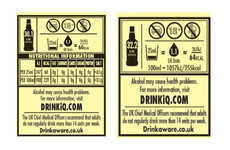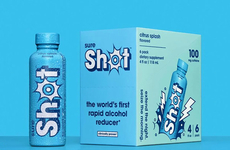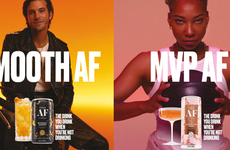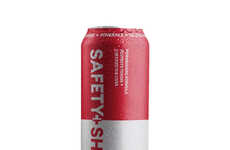
This Infographic Looks at the Health Effects of Binge Drinking
Jonathon Brown — January 16, 2013 — Lifestyle
References: visual.ly
What are the real health effects of binge drinking? And for that matter, how is binge drinking defined? These are just two of the questions this infographic aims to answer.
While most people think of alcoholism as a disease that plays out in the form of daily drinking, regular binge drinking can also have serious health consequences. Binge drinking is defined as drinking until your blood alcohol level is 0.08 or higher. For men, this usually means five or more drinks and for women it usually means four or more drinks within two hours.
Spirits and beer are the most popular drinks consumed during drinking binges. 81% of people start binge drinking during their college days. This is often due to their newly acquired freedom.
While most people think of alcoholism as a disease that plays out in the form of daily drinking, regular binge drinking can also have serious health consequences. Binge drinking is defined as drinking until your blood alcohol level is 0.08 or higher. For men, this usually means five or more drinks and for women it usually means four or more drinks within two hours.
Spirits and beer are the most popular drinks consumed during drinking binges. 81% of people start binge drinking during their college days. This is often due to their newly acquired freedom.
Trend Themes
1. Binge Drinking Consequences - The trend of highlighting the negative health effects of binge drinking and promoting responsible drinking practices can lead to the proliferation of premium low-alcohol and non-alcoholic drinks.
2. Healthy Drinking Alternatives - The trend of consuming health-focused drinks like CBD-infused beverages or health tonics as an alternative to binge drinking can lead to the growth of the health and wellness industry.
3. Alcohol Industry Responsibility - The trend of holding the alcohol industry accountable for the negative effects of binge drinking can lead to positive partnerships between companies, government agencies, and advocacy groups promoting responsible drinking.
Industry Implications
1. Alcohol Industry - The alcohol industry can develop low-alcohol and non-alcoholic drinks to promote responsible drinking practices and tap into the growing market of health-conscious consumers.
2. Health and Wellness Industry - The health and wellness industry can benefit from the trend of alternative drinks by developing more natural, functional, and healthy beverages for consumers to choose from.
3. Public Health Industry - The public health industry can work with companies and government agencies to raise awareness of the negative health effects of binge drinking and develop evidence-based interventions to reduce alcohol-related harm.
4.1
Score
Popularity
Activity
Freshness























